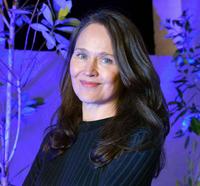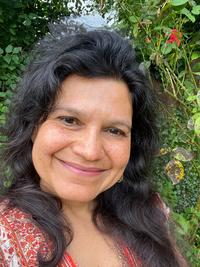
SANT Conference 2022
The theme of the 2022 edition of the Annual Conference of the Swedish Anthropological Association (SANT) is Futures. The future is not what it used to be. Is the future worth remembering, or is one better off just forgetting about it? For this conference, we invite discussions on the inclusive theme of futures, whether uncertain, desired or dreaded.
Dates, venue and registration
28-30 April 2022, School of Global Studies, University of Gothenburg
The conference will be held at Annedalseminariet (Seminariegatan 1A) and Linnésalen (Seminariegatan 1B) at Campus Linné. See building 1A and 1B in the picture below:
Road map from the conference venue at Annedalseminariet to the restaurant Silvis (Nordhemsgatan 18) where the conference dinner will take place on 29 April.
Deadlines:
- Extended deadline panels: 1 February, 2022
- Extended deadline for papers: 22 February, 2022
- Registration: 1 April, 2022
Registration
Follow this link to register your payment and confirming your participation for SANT2022. Registration is open until 1 April 2022, please make sure to register before then.
Please read through the information carefully when registering and note that the conference dinner on Friday night 29 April is paid as a separate ticket.
Contact
For contributions and questions please contact us on:
sant2022@globalstudies.gu.se
About the conference
The future is not what it used to be. Is the future worth
remembering, or is one better off just forgetting about it?
Current debates on crises such as climate change or the pandemic have forcefully brought the future into focus. Predictions, forecasting and speculation, whether regarding new imminent lockdowns, or the long-term endurance of humanity or the planet have become commonplace, both in public discourse and as part of managing our everyday lives. The future is often imagined as a singular chain of chronologically ordered events, and as located away from ourselves; as that which is still to come. Yet, anthropologists have long recognised that futures are multiple and heterogeneous; they are conditioned by the imaginations, material configurations and actions of the present and they exist here and now, as current ways of being. Perhaps, to borrow from a recent text by Tsing et al, futures are best thought of as "patchy" – unevenly conditioned, imagined and enacted across the globe, evoking questions about the scope for life plans and futures as something we make.
For this conference, we invite discussions on the inclusive theme of futures, whether uncertain, desired or dreaded. We welcome contributions that add to our understanding of futures as always situated, and as involving specific forms of cultural understanding, knowledge, power, and resources.
- Whose temporal frameworks and visions of the future get heard, and whose are silenced?
- Who gets to live in whose futures, and how are humans and nonhumans differentially impacted by how they are imagined?
- How does the language of futures open some avenues for action while closing off others?
- Finally, how can anthropologists, in Hannerz’ words, participate in writing futures, and expand our repertoire of what is possible to hope for?
We look forward to panels and papers that offer ethnographic perspectives on how pluralised futures are lived, made within and have consequences for a myriad of contexts and ways of being.
The conference will have three tracks:
- Culture/Futures, where we gather contributions on futures and futurity as socio-cultural phenomena, for example how futures are imagined, communicated, enacted or experienced, whether as hope, fear, possibility or inevitability.
- Anthropology/Futures, we will collect contributions that deal with what anthropologists can do to study, affect or shape futures, including those that discuss the future of anthropology itself or methodological issues.
- Open track for contributions that focus on topics other than futures.
We now invite everybody to present either panels or single papers in the different tracks. If you wish to propose a panel it is an advantage if you already know of at least three committed papers. It is also possible to propose single papers for each of the tracks. Panels will be given 2 hours and papers 20 minutes, unless panel organizers decide otherwise.
Please send a 250 word abstract of your panel proposal or paper with title and contact details to sant2022@globalstudies.gu.se. Submissions can be made in either English or Swedish. Speaking of uncertain futures, the plan is for the conference to be wholly on campus, but if things change, we will let you know.
The rest is, as they say, futures. Welcome!
Keynote speakers
Sarah Pink - Life at the Edge of the Future
Professor of Design and Emerging Technologies, Monash University
Director, Emerging Technologies Research Lab
Leader Transport Mobilities Focus Area and Co-Leader People Programme,
ARC Centre of Excellence for Automated Decision-Making & Society
Associate Director (Consumers) Monash Energy Institut.
Alpa Shah - Why Write: In a Climate Against Intellectual Dissidence
Professor in Anthropology, London School of Economics
Leader of the LSE International Inequalities Institute ‘Global Economies of Care’ research theme.


Panels
Deadline to submit papers was 22 February.
Program
| Plenary | Room 220 | Room 204 | Room 303 | |
|---|---|---|---|---|
| 12:00-13:00 | Registration (AH) | |||
| 12:50-13:00 | Welcome (AH) | |||
| 13:00-15:30 | Panel 1 | Panel 2 | Panel 3 | |
| 15:30-16:00 | Coffee break (AH) | |||
| 16:00-17:30 | Round table AA (AH) | |||
| 17:00-19:30 | Mingle and SSAG (AH) |
AH: Assembly Hall, 5th floor Annedalseminariet
LS: Linnésalen, ground floor JMG-building, across the yard
Room 220: 2nd floor Annedalseminariet
Room 204: 2nd floor Annedalseminariet
Room 303: 3d floor Annedalseminariet
| Plenary | Room 220 | Room 204 | Room 303 | |
|---|---|---|---|---|
| 09:00-10:00 | Keynote: Sarah Pink (room 220) | |||
| 10:00-10:30 | Coffee break (AH) | |||
| 10:30-12:30 | Panel 4 | Panel 5 | Panel 6 | |
| 12:30-13:30 | Lunch | |||
| 13:30-15:30 | Panel 4 | Panel 7 | Panel 8 | |
| 16:00-17:15 | Keynote: Alpa Shah (LS) | |||
| 17:15-18:30 | SANT Annual Meeting (LS) | |||
| 20:20 | Conference dinner at Restaurant Silvis | |||
AH: Assembly Hall, 5th floor Annedalseminariet
LS: Linnésalen, ground floor JMG-building, across the yard
Room 220: 2nd floor Annedalseminariet
Room 204: 2nd floor Annedalseminariet
Room 303: 3d floor Annedalseminariet
| Plenary | Room 220 | Room 204 | Room 303 | |
|---|---|---|---|---|
| 09:00-10:30 | Panel 9 | Panel 10 | Panel 11 | |
| 10:30-11:00 | Coffee break (AH) | |||
| 11:00-13:00 | Panel 9 | Panel 10 | Panel 11 |
AH: Assembly Hall, 5th floor Annedalseminariet
LS: Linnésalen, ground floor JMG-building, across the yard
Room 220: 2nd floor Annedalseminariet
Room 204: 2nd floor Annedalseminariet
Room 303: 3d floor Annedalseminariet
The organizer
The host, the School of Global Studies at the University of Gothenburg, is an interdisciplinary department consisting of several social sciences, including peace and development research, human ecology, human rights and social anthropology. Anthropological research at the School of Global Studies builds on a tradition of detailed empirical fieldwork. At the core of our research are lived life, everyday praxis, and the workings of power.